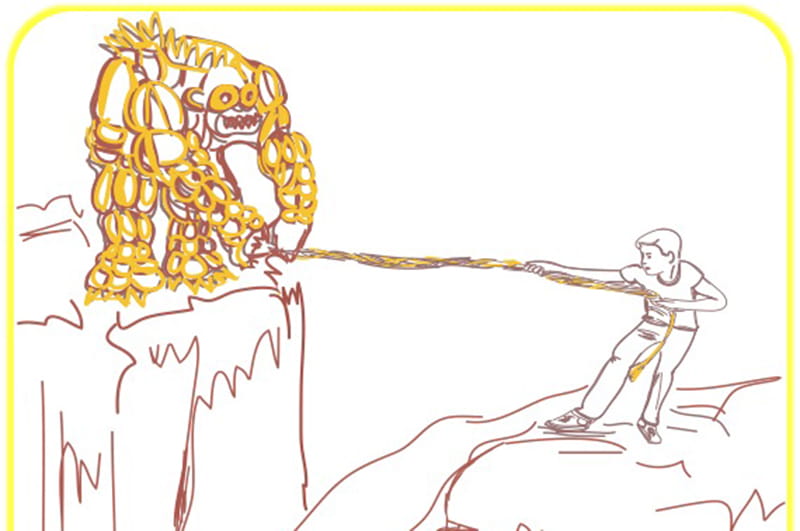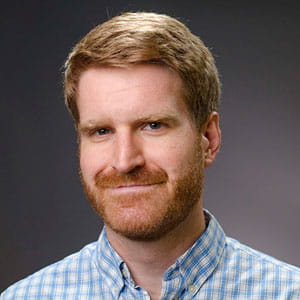Grad Student's Online Treatment Opens New Possibilities for People With Social Anxiety

- New Project Examines Racism and Resilience Among Black Autistic Children and Caregivers
- New AI-Technology Estimates Brain Age Using Low-Cost EEG Device
- Bolstered by Research Consortium with Drexel, Jefferson’s Sidney Kimmel Cancer Center Earns NCI Comprehensive Cancer Center Designation
- Alyssa Kemp Named as 2024 Truman Scholar

Social anxiety disorder is one of the most common psychiatric disorders. But only one in five people who have the condition actually receive treatment for it. If you fear interaction with other people, then how do you build up the courage to call up a stranger on the phone and ask for help, let alone to go talk face-to-face with a therapist?
Marina Gershkovich may have an answer to this problem.
Gershkovich, a Drexel PhD student in clinical psychology, is evaluating a new way to deliver socially anxious people the treatment they need: an innovative online self-help program she developed.
A member of the lab of psychology professors James Herbert, PhD and Evan Forman, PhD, Gershkovich is interested in solving a quandary for clinical psychologists. Proven, evidence-based treatments exist for social anxiety disorder, but those treatments may not find their way to most people who need them. This is because of a variety of reasons: People may live in rural areas, far away from therapists offering treatment; some mental-health providers may not practice treatments supported by state-of-the-art research evidence; and people with social anxiety may shy away from seeking treatment because of their fears.
Gershkovich believes the online program she’s developed can help overcome some of those roadblocks. Plus, it could be much more affordable than traditional in-person therapy.
“You can have a full-time job and get treatment,” Gershkovich said. “It’s anonymous. And you can face your fears gradually.”
The online program lasts just eight weeks, but Gershkovich said she saw significant results in the pilot study she conducted for her master’s thesis. For people with mild to moderate levels of social anxiety, the program resulted in decreased symptomology. In fact, some participants no longer met criteria for the disorder upon completion of the program. For those whose symptoms were more severe, the program served as a first step in getting them to a point where they felt comfortable seeking in-person help.
The program resembles an online class, with weekly modules that participants must complete in sequential order. The format allows for multimedia components such as illustrations and videos that aren’t a part of traditional in-person therapy.
For example, as a voiceover from Herbert compares experiencing anxiety to a game of tug-of-war with a monster across a deep canyon, an illustration (drawn by Gershkovich) drives the point home.
“We talk about these metaphors in session,” Gershkovich explains. “We say, ‘Imagine this monster.’ Now, in the internet program, you don’t have to imagine it.”
The principal scientifically based treatment for anxiety is exposure therapy: gradually exposing people more and more to the things that they fear, alleviating their anxiety bit by bit. That requires some accountability, to ensure that people are actually doing their “homework” and challenging themselves with exposure. That’s why, in her pilot study, Gershkovich checked in with each participant once a week with a 10- to 15-minute therapy session via videoconference. This weekly videoconferencing time is also itself a mini-exposure for participants.
“They might know what they need to do, and they might want to do it,” Gershkovich said, “but the issue is just getting them to do it.”
Next up, for her dissertation, will be a study examining how effective the program can be even without the remote support of a therapist.
Gershkovich is recruiting potential participants — people ages 18-65 experiencing significant social anxiety (trouble speaking in public, difficulty making friends, shyness) interested in free treatment. Drexel students, faculty or professional staff are eligible. People interested in taking part can visit an informational webpage, call 215.571.4257, or email drexel.selfhelp@gmail.com.
For people struggling with social anxiety, the study could help open the door to the sometimes-difficult step of seeking help.
In This Article
Drexel News is produced by
University Marketing and Communications.
